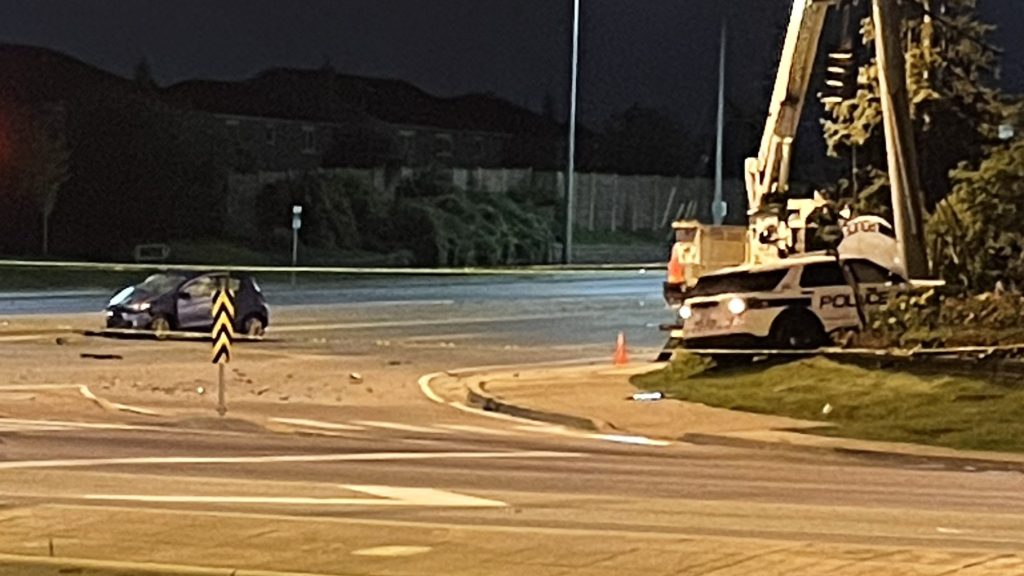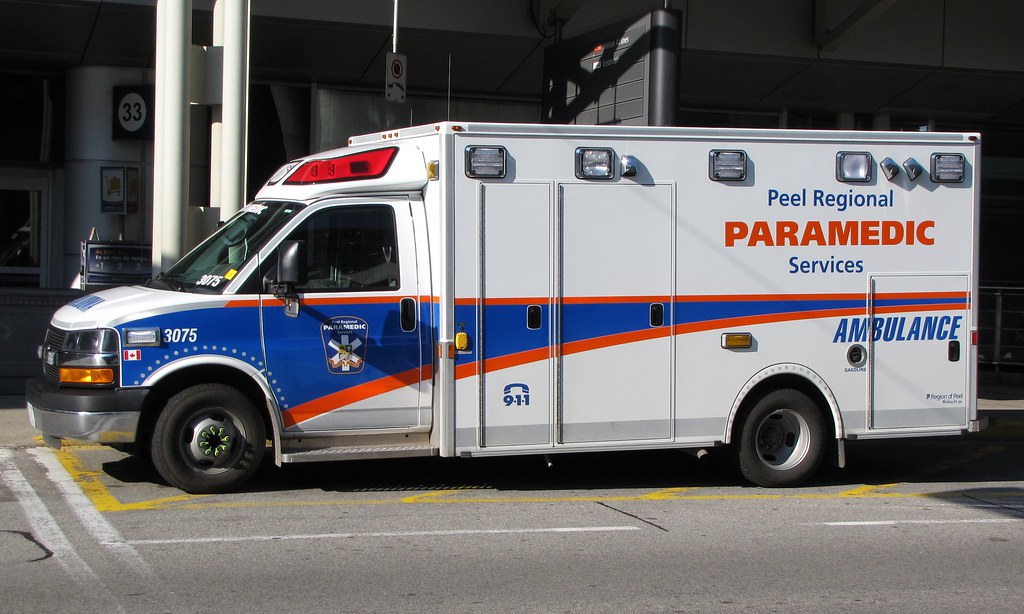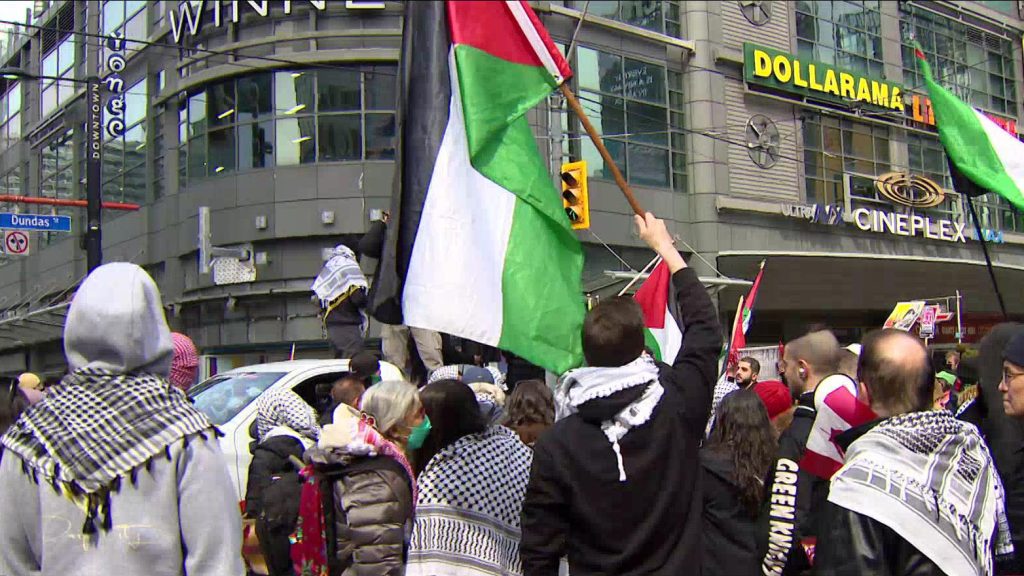‘Productive’ meeting ends between minister and Mohawks, protest goes on
Posted February 15, 2020 11:14 am.
Last Updated February 15, 2020 10:39 pm.
Hours of talks between the federal government and representatives of the Mohawk First Nation ended with “modest progress” Saturday evening, Indigenous Services Minister Marc Miller said as he left the meeting near a rail blockade that’s shut down train service across much of Eastern Canada.
But Miller declined to tell reporters what that progress was, saying he would deliver that message to Prime Minister Justin Trudeau directly.
“Tonight, we made some modest progress by opening up a dialogue with the people standing out there in the cold and doing so for eight or nine days,” he said. “We talked openly, frankly, painfully at times, and sometimes with humour. There’s a lot more work to be done.”
The focus, Miller said, was firmly on the natural gas pipeline that crosses Wet’suwet’en territory in northern British Columbia and is opposed by their hereditary chiefs.
He said there are steps the federal government needs to take to resolve the blockade on Tyendinaga Mohawk territory near Belleville, Ont., which was in its 10th day on Saturday.
“They aren’t easy, no one said they were,” he said. “The underlying issues did not arrive yesterday, they’ve been present in this community for hundreds of years.”
Miller requested the meeting to “polish the silver covenant chain,” which the Mohawks say refers to one of the original agreements between the First Nation and the Crown.
Meeting wrapped about an hour ago. Miller said progress was modest. Said this is not an easy issue and won’t get better without more dialogue and discussion. He will be reaching out to PM tonight to discuss
— Erica Natividad (@CityErica) February 16, 2020
As he arrived in Tyendinaga some nine hours before his meetings would end, Miller said the blockades have been divisive.
“All of Canada is hurting,” he added. “The economy is slowing down. Everyone knows the reports about supply shortages, but we can’t move forward without dialogue.”
He also acknowledged that First Nations have felt alienated in Canada.
“I can’t guarantee what the outcome will be. It isn’t mine to judge,” the minister said. “And so I’m here to discuss in peace and friendship with a bunch of people that haven’t felt part of this country.”
“This is a situation that is very tense, very volatile, there are some people that have been standing out there for days, so today is a chance to talk and have a real discussion,” Miller said.
“We’re a nation of people who have stopped talking to each other. We tweet, we make statements on Facebook, we go around asking, condemning, but we’re not talking.”
CN obtained a court injunction to end the demonstration on Feb. 7, but the Ontario Provincial Police have not enforced it.
An injunction in B.C. was enforced earlier this month by the RCMP to give Coastal GasLink access to a work site for the pipeline, which is part of a $40-billion LNG Canada export project in Kitimat.
Coastal GasLink has signed agreements with all 20 elected band councils along the pipeline route. However, Wet’suwet’en hereditary chiefs assert title to a vast 22,000-square-kilometre area and say band councils only have authority over reserve lands.
A growing number of business leaders and industry groups called for government or police intervention in the shutdowns, and federal Conservative Leader Andrew Scheer took up the cry on Friday.
Prime Minister Justin Trudeau said the disruptions must be resolved through dialogue, not by ordering in the police. He acknowledged the difficulties the blockades have caused for travellers and businesses, but he said the federal government has no plans to make the RCMP dismantle them.
“We are not the kind of country where politicians get to tell the police what to do in operational matters,” Trudeau said in Munich, Germany, where he was attending a global security conference.
“We are a country that recognizes the right to protest, but we are a country of the rule of law. And we will ensure that everything is done to resolve this through dialogue and constructive outcomes.”
Alberta Premier Jason Kenney maintained his criticism of the protests.
“Fascinating to see champions of wokeness suddenly embrace hereditary patriarchy as a preferred governance model,” he tweeted.
Similar blockades across the country have cut both passenger and freight rail services, with pressure mounting on the federal government to end them.
Just north of Toronto, a group called Toronto Wet’suwet’en Solidarity blocked the CN tracks just north of Steeles Avenue for trains leaving from MacMillan Yard and heading to parts of western Ontario and the U.S.
One protestor said she came out to stand in solidarity with the rest of the protests across the country.
“As a settler person here in Canada, I really encourage other settlers to reflect and take action around indigenous solidarity movements,” Sarah Rotz said. “[They should] reflect on the role colonization has and continues to play across Canada.”
Rotz added that governments are using words like reconciliation and sharing, but are not demonstrating those principals when it comes to issues like the pipeline.
“This is where the rubber meets the road in terms of reconciliation,” she said. “Armed enforcement, violent eviction of indigenous people from their lands, completely ignoring indigenous legal systems, governance systems …that is not reconciliation and we need to be really clear about that.”
CN said in a statement it had “deep concerns” about the safety of its employees, the public and protesters during Saturday’s demonstrations.
“In Vaughan, protesters put their personal safety at risk by climbing on and between railcars … Trespassing on railway property and tampering with railway equipment is not only illegal, but also exceedingly dangerous,” JJ Ruest, CN’s president and CEO, said in a written statement.
The demonstrators ended their blockade around 6 p.m.
GO Transit says its services in the Barrie-Toronto corridor were affected today because about 80 people were on the tracks it uses north of Toronto. Metrolinx said they suspended service for safety reasons. Service resumed again just before 7:30 p.m.










